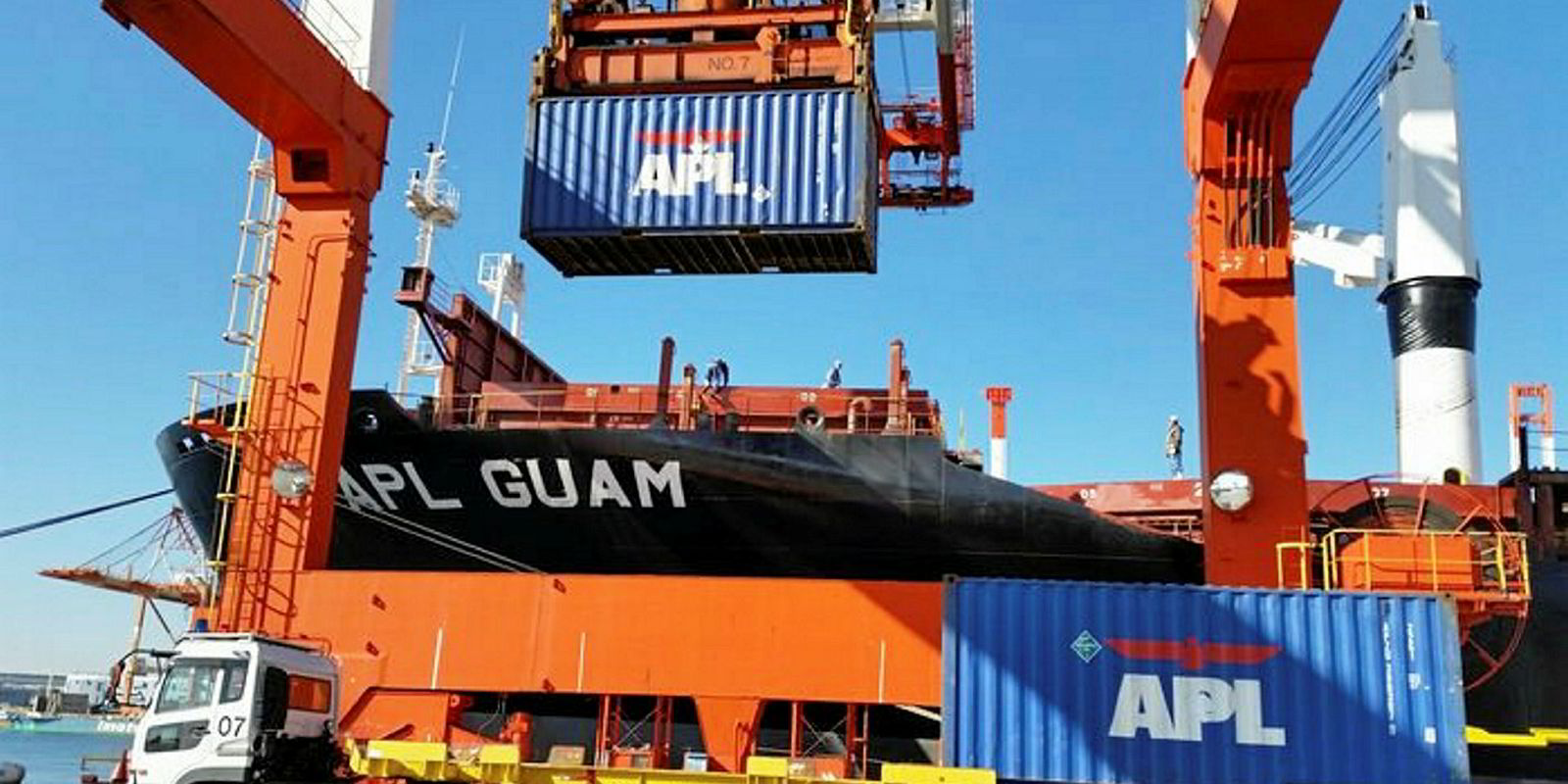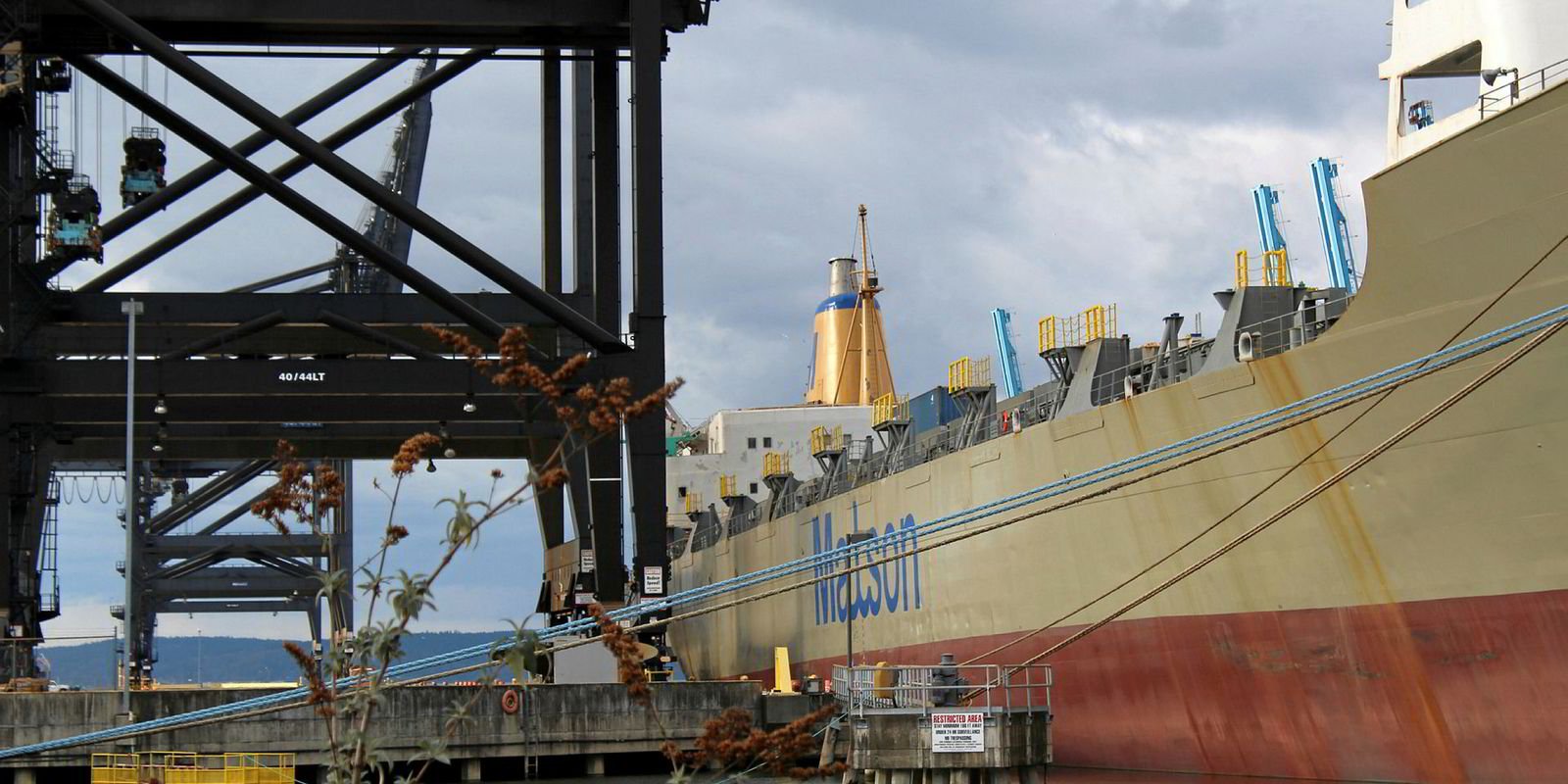The axe fight between Matson and APL is headed to the courts.
In a suit filed in Washington, DC federal court Tuesday, the Hawaiian containership owner alleges the US Department of Transportation and the Maritime Administration are unlawfully providing subsidies to the CMA CGM subsidiary, helping to crater Matson's Guam service.
APL is not a party in the lawsuit, but the lawsuit seeks to strip subsidies from two of its boxships.
Neither APL nor the Department of Transportation returned a request for comment.
“Matson supports full and fair competition in all of its trade lines, but so long as APL vessels are receiving federal subsidies for which they do not qualify, Matson is not competing on a level playing field," the complaint read.
The suit says the 1,078-teu APL Guam (built 2001) and the 1,638-teu APL Saipan (built 2002) were approved to join the Maritime Security Program in 2015 and 2016, where eligible ships operating in foreign trade receive a subsidy in exchange for use by the Department of Defense in the case of national emergencies and war. But the two ships began and ended their journeys at American ports, thus involved in domestic, not foreign, trade as defined by law and ineligible to receive the subsidy.
The two companies have been going head to head in the Guam trade since APL started running ships there in 2015 and beefed up its service in 2016. In the lawsuit, Matson said the number of containers transported on its Guam service dropped by nearly a quarter from the fall of 2016 to the fall of 2017, and further since.
Matson challenged the federal agency's decision both in early 2017 in an administrative appeal to MarAd and in federal appeals court earlier this year. The court determined Matson lacked jurisdiction.
In his first quarter 2018 conference call, Matson chief executive Matt Cox called the competition an "axe fight" and assured analysts and shareholders the company would "fight to retain every single container of our customer's business.
"It continues to feel like we’re in an axe fight and we’ll continue that until it stops and exactly when that occurs is really kind of up to our main competitor," Cox said.
"I will leave that for them to answer, but this is a long-term important market for us and we’re dug in here to continue both with service and other advantage to retain the role as the market leader.”





